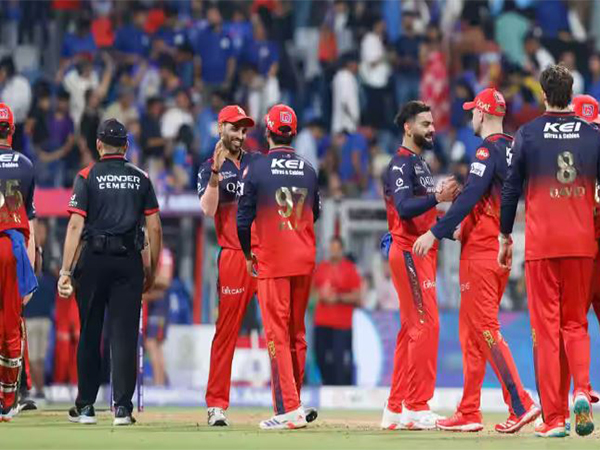Delhi HC refuses to stay release of movie Faraaz, asks petitioners to resolve issue through talks
Jan 17, 2023

New Delhi [India], January 17 : While hearing an appeal against the movie "Faraaz", the Delhi High Court referred to the famous Pakistani Urdu poet Ahmed Faraaz and asked the director and producer to resolve their issue with the mothers of two victims of the Dhaka terror attack of 2016 on which the movie is based.
The earlier plea against the release of the movie was rejected by the single-judge bench of the Delhi High court on October 14, 2022.
During the hearing on Tuesday, the Division bench comprising justices Sidharth Mridul and Talwant Singh remarked that if the directors are naming a movie Faraaz, they should understand what he stood for.
The bench asked them to try to resolve the dispute with the petitioners.
The bench also said, "If you wish to be sensitive about the sentiments of a mother, then talk to her."
However, the court refused to stay the release of the movie and said all the details are in the public domain. The dastardly attacks have been captured on the celluloid in the past also.
Justice Mridul said, "People like sensational movies. People like movies based on true stories. What can you do?... Not a single holocaust that man has ever experienced hasn't been put on celluloid. What do you do?"
The counsel for the respondent accepted the suggestion to sit with the petitioner and resolve the issue.
The petitioners' counsel, senior advocate Akhil Sibal argued before the court that the primary issue is of privacy of the victims and their families. The makers of the movie took the issue in an insensitive manner.
He also argued that the Single judge held that since the girls are deceased, there can be no right to privacy as regards their lives.
The question is whether the parents will have the right to privacy in relation to the lives of their deceased daughters, the senior advocate argued.
The bench referred to the judgement of the Supreme court in the case of the 1978 Political satire 'Kissa Kursi Ka' and said "Look at the judgement. What did the Supreme court say then? The subject of the movie was the prime minister.
The Delhi High Court on October 14, refused to grant a stay on the release of the movie Faraaz observing that there is no prima facie case and no personal loss to the plaintiff. This movie is based on the Bangladeshi Terror attack of 2016 in which the daughters of the plaintiffs were killed.
The single judge had said, "The plaintiffs have not been able to establish any of the three limbs i.e. prima facie case, the balance of convenience or irreparable loss or injury in their favour. The plaintiffs are, therefore, not entitled to an injunction.
An application was filed for ad-interim injunction for restraining the defendants from releasing the movie "Faraaz" in any manner whatsoever, amounting to infringement of the plaintiff's fundamental right to privacy and fair trial.
The petitioner was filed by the mother of one Abinta Kabir, who is also the Co-Founder and General Secretary of the Foundation Abinta Kabir which has been created in memory of her daughter.
Another plaintiff is the mother of one Tarishi Jain, who is also the Co-Founder and Chairman of the Live Life Like Tarishi Foundation, which has been created in memory of Tarishi Jain.
It was stated that both Abinta Kabir and Tarishi Jain lost their lives in the Holey Artisan (Dhaka, Bangladesh) Terrorist Attack on July 1, 2016.
The defendants have produced a movie by the name of "Faraaz" to which an objection has been taken by the plaintiffs on the ground that it may depict the daughters of the plaintiffs in bad light in relation to the Terrorist Attack on July 1, 2016, which would be difficult for the plaintiffs as they would have to revisit the traumatic incident all over again.
It was also submitted that in several interviews, the defendants have informed the public at large that the movie is being made on true-life events and it is also mentioned in the news articles that "FARAAZ" stood up for the lives of his two friends - Abinta Kabir and Tarishi Jain and refused to leave his friends. He could not save himself; he could not save them either.

















